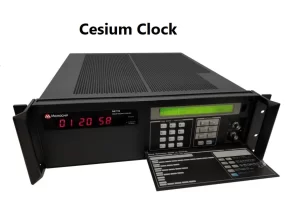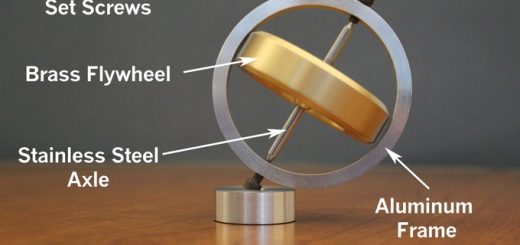Cesium clock features, advantages and disadvantages, Why is cesium used in clocks?
Cesium atomic clocks are among the most precise timekeeping devices available. It gains or loses only 1 second in 100 million years. It provides consistent time measurement with minimal drift. It is used in Coordinated Universal Time (UTC) systems. It is essential for GPS, telecommunications, scientific experiments, and financial markets.
What is a Cesium Clock?
A cesium clock is a highly precise atomic clock that uses the vibrations of cesium-133 atoms to measure time. It is the primary standard for defining the SI second and is used for global timekeeping, GPS, and scientific research.
How Does Cesium Clock Work?
Cesium clocks rely on the natural frequency of cesium-133 atoms. When cesium atoms are exposed to microwaves, they transition between two energy states at exactly 9,192,631,770 Hz (cycles per second). This frequency is used to define one second in the International System of Units (SI).
Features of Cesium Clocks
- High Accuracy: Cesium clocks define the SI second, with an accuracy of about one second in 100 million years. They are accurate to nanoseconds per day, making them crucial for precise timekeeping.
- Time Stability: Cesium clocks have extremely low drift, ensuring reliable long-term timekeeping. They are used in Coordinated Universal Time (UTC) systems to synchronize global time standards.
- Atomic Resonance Mechanism: Cesium clocks operate based on the frequency of microwaves emitted by cesium-133 atoms during a hyperfine energy transition (9,192,631,770 Hz).
- Continuous Operation: Cesium clocks can function continuously for years with minimal maintenance. Some modern cesium clocks have lifetimes of over 10 years.
- Compact and Miniaturized Models Available: While traditional cesium clocks are large, compact versions like the chip-scale atomic clock (CSAC) provide high precision in a smaller form factor.
- Applications in Critical Systems: Cesium clocks are used in GPS satellites, telecommunications, financial transactions, and scientific research. They are essential for high-frequency trading, military applications, and deep-space navigation.
Advantages of Cesium Clocks
Cesium clocks are among the most accurate and stable atomic clocks available. Cesium atomic clocks can maintain time accuracy to within a few billionths of a second per day. They provide highly consistent time measurements over long periods. They are used in GPS satellites, telecommunications, and scientific research requiring precise time synchronization.
Cesium clocks define the SI second and are used for Coordinated Universal Time (UTC). Unlike mechanical or quartz clocks, cesium clocks have minimal drift over time. Cesium clocks are unaffected by environmental changes. They are resistant to variations in temperature and pressure.
Disadvantages of Cesium Clocks
Cesium clocks are expensive to manufacture and maintain. They require sophisticated technology and specialized maintenance. Traditional cesium clocks are bulky and require significant power, though miniaturized versions exist. Cesium sources deplete over time and need replacement after several years. While highly accurate, newer optical lattice clocks (like strontium or ytterbium clocks) are even more precise.
You can follow Science Online on Youtube from this link: Science online
What are the importance of atomic clocks and How do Atomic Clocks work?
What are the advantages and disadvantages of using the Internet?
Global Positioning System (GPS Tracking System) advantages and disadvantages
Global Navigation Satellite System (GNSS) types, use & importance
What are the importance and uses of Satellites in our life?
Idea of launching the satellite & Factors affecting the orbital velocity of a satellite
Extranet review, features, use, advantages and disadvantages
Intranet advantages, disadvantages, How do Intranet, Internet, and Extranet differ?
Benefits & application of Artificial intelligence in business, E-commerce and marketing
Online marketing uses, advantages and disadvantages
What are the advantages and disadvantages of Internet banking?




